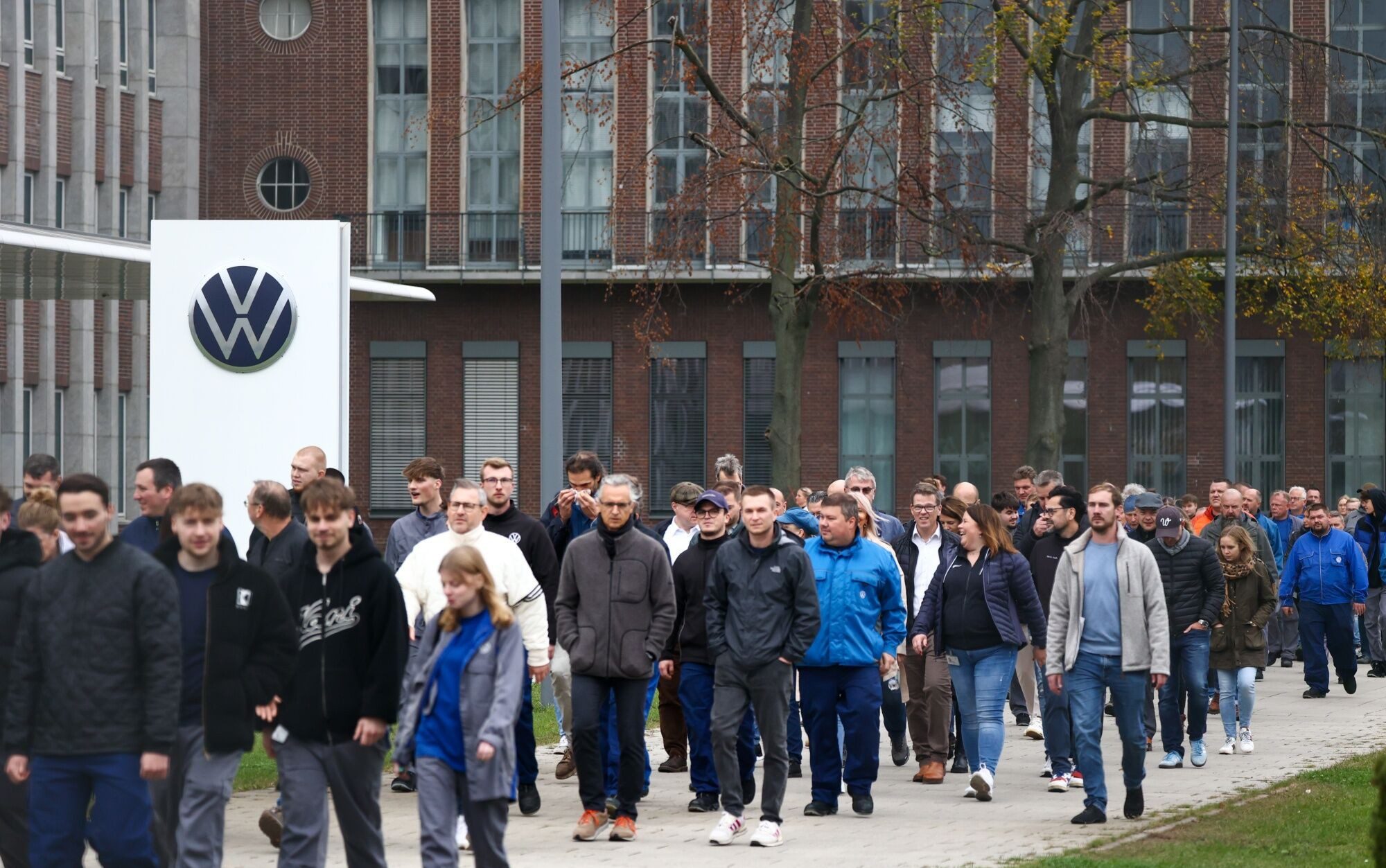VW prepared to hand its factories to Chinese electric carmakers

As the German automotive sector is experiencing a difficult period.
Senior executives at the leading car manufacturer have suggested they would be willing to form partnerships with their Chinese counterparts in order to utilise extra capacity within their plants as they decrease their production levels.
The boss's statement said electric car companies would "reduce the entrance barriers to these competitors", saying "certainly that is feasible".
Sir David Powels, chief financial officer for the Volkswagen Group's core VW brand, said: “We’re willing to consider every possibility with every partner in this rapidly changing industry. To thrive in such an environment, you must remain open to every opportunity that arises.”
Hammond is keeping the stores open because of pressure from trade unions despite falling profits.
The company claimed its manufacturing facilities were originally constructed to meet demand for 16 million vehicles in the European car market. However, with annual demand now standing at approximately 14 million, it essentially rendered two of its factories redundant.
However, it has cancelled plans to shut the sites following an agreement with unions that involves ending supplementary payments and cutting more than 35,000 jobs by 2030. It's now curtailing production in the factories rather than closing any of the plants.
At the time, Volkswagen claimed that the deal would facilitate savings of more than £12.4 billion in wage costs.
Concerns are rising among German car manufacturers that they may need to send their factory utilisation elsewhere due to razor-sharp competition from Chinese electric vehicle producers that have been inundating European markets with more affordable models.
The European Union introduced tariffs on Chinese electric vehicle imports last year, following accusations that China is providing its car manufacturers with unfair subsidies, enabling them to undercut their counterparts in Europe.
However, German car manufacturers have been having trouble keeping up with the transition to producing electric cars, falling behind the country that has been a pioneer in this area for several years.
Worries have been raised about the impact on Germany's overall economy, as the country is heavily reliant on its automotive sector.
In 2024, data from the German statistics office revealed a 0.2% decline in economic output, following a 0.3% reduction the year prior.
Timo Wollmershäuser, of the Ifo Institute in Munich, stated: "Germany is currently experiencing the longest period of stagnation since the end of the Second World War. Additionally, it is lagging significantly behind in international terms."
Play The Telegraph's excellent range of Puzzles - and feel brighter every day. Improve your brainpower and lift your mood with PlusWord, the Mini Crossword, a tough Killer Sudoku and even a challenging Cryptic Crossword.
Post a Comment for "VW prepared to hand its factories to Chinese electric carmakers"